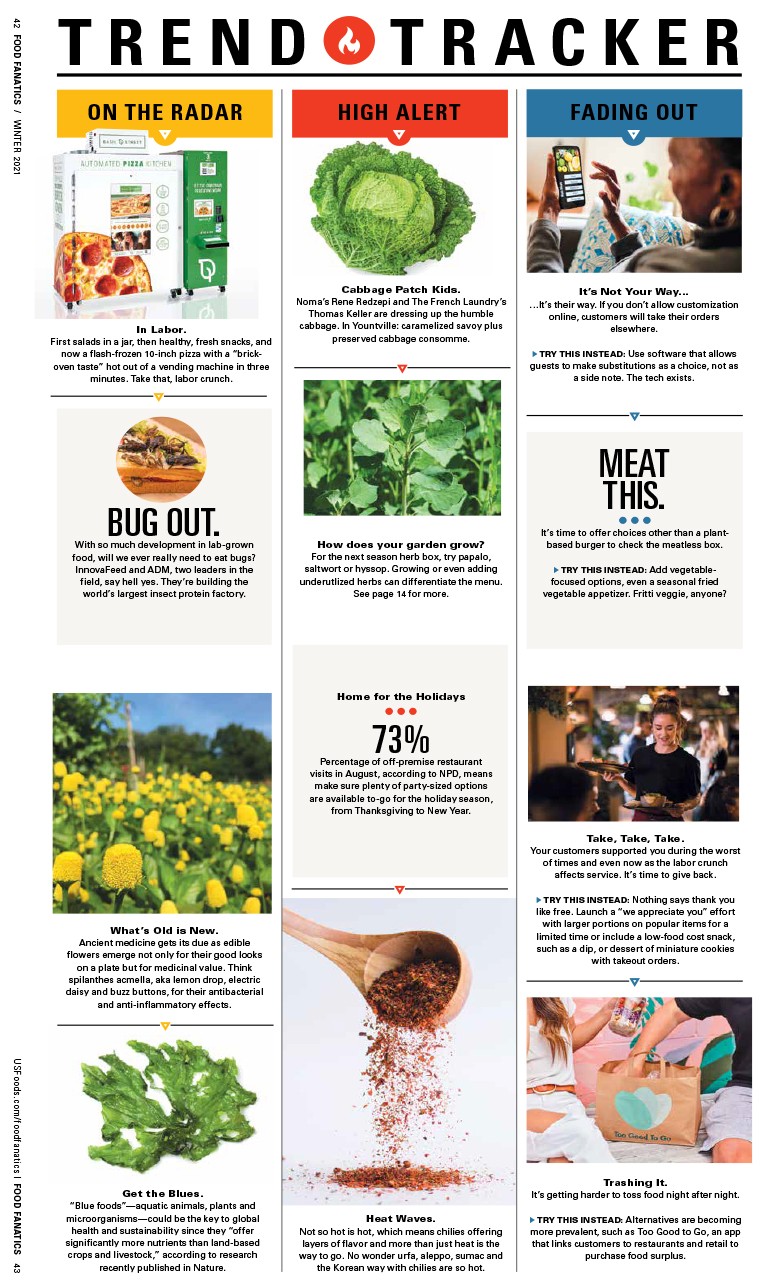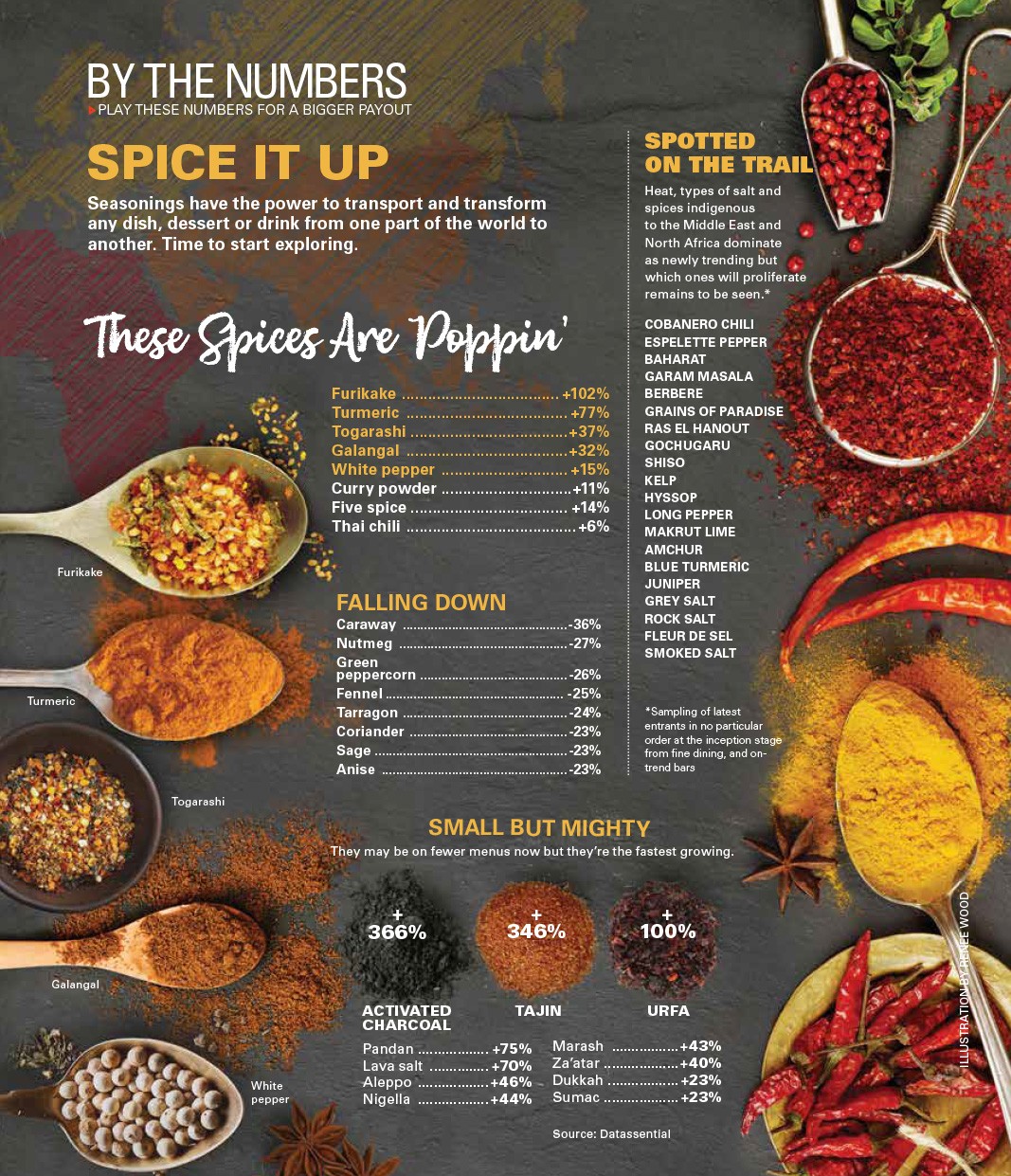The Feel Good Factor
Keep employees engaged with opportunities to build community connections.
After a class field trip to Fuel Pizza in Charlotte, North Carolina, it’s commonplace for the kids to high-five Zach Current and say the pizza they made with him was “the bomb.” The school outing is an ongoing effort to inspire healthy dining choices that Current, managing partner of Fuel, created with the school district, health department and community groups.
Such engagement provides obvious benefits to the recipients, but it also enriches the staff. Feel-good efforts can boost morale and strengthen loyalty while creating connections between co-workers and the community.
“Some of our managers say it’s their favorite time of year,” Current says. “Employees are always eager to participate as a pizza maker in the demos.”
“All kids are encouraged to try their veggie creations, and every kid ends up loving it,” Current says. “That’s been amazing to see.”Fuel’s program begins with students planting a “pizza garden,” which includes spinach, tomatoes, onions, green peppers, oregano and basil. Throughout the year, Current visits classrooms where he teaches the students about the science of pizza dough and how to make it. When the vegetables are ready for harvest, students pick the produce and take a field trip to one of eight Fuel locations in the Charlotte area (or four in Washington, D.C.), where chefs teach them how to transform the produce into healthy and tasty pizza toppings.
Feed Your Passion
A desire to give back to the city of Portland, Oregon, prompted resident Ryan Saari and his friends to open the Oregon Public House, a nonprofit pub, in May 2013.
Thanks to the help of more than 200 volunteers and nearly $200,000 raised without loans or investors, the pub opened without debt, enabling Saari and the pub’s other board members to dive into giving back. The pub’s profits are donated to as many as eight charities.
“We’ve given away almost $25,000 in our first year. That we’ve been able to make that much—as well as put $15,000 back into the business ... has been a wonderful success for us."
-Ryan Saari, Oregon Public House
“We’ve given away almost $25,000 in our first year,” Saari says. “That we’ve been able to make that much—as well as put $15,000 back into the business to replace our kitchen equipment—and remain solvent, has been a wonderful success for us.”
To reduce overhead, the Oregon Public House staffs strategically. There’s no waitstaff; customers are encouraged to bus their own tables. Volunteers help as hosts and bussers for almost every shift.
“A lot of our employees came because they believed in the vision first and foremost,” Saari says. “Same with our customers and our volunteers. They’re not just happy working at any pub; they believe in the mission and the vision we have.”
The Oregon Public House offers classic pubfare, but Saari says the emphasis on charity is what draws the crowds. “We hit very heavy on the nonprofit side,” he says. “It’s the key to our success.”
Get Creative
Restaurants are hit up daily for food donations and sponsorship requests. Giving is a good thing, operators say, but some want to be more involved. Boloco, a Boston-based fast casual chain serving wraps and smoothies at 22 locations across New England and the Mid-Atlantic region, participates in athletic events. One such event is The Prouty, a bike, walk, row and golf benefit for the Norris Cotton Cancer Center at Dartmouth-Hitchcock Medical Center in Lebanon, New Hampshire. Team members and friends of Boloco participate together, and the location in Hanover provides food. They raised $50,000 in 2012.
And the staff really gets into it. “We always have team members ready to participate,” says Boloco marketing manager Alexandra Dunk. “They are open and excited about these opportunities.”
Boloco restaurants are also empowered to make donations as part of their day-to-day operations. Community support can be donations of food and gift cards, or hosting charity nights and other in-store events. In Boston, where close to one in five residents is a college student, the opportunities to give back to universities are ample. “[At campus locations,] in particular, you’ll hear a lot about what kinds of fun team members have had and how they’ve been able to connect with students and campus communities,” Dunk says.
Current agrees that a charitable atmosphere keeps employees happy and adds to their affinity for the job. “What keeps people with us is that they know we can give back to our community,” he says. “If this is something that’s important to our managers, we bring it to the table.”
Waste Not …
Throwing away food at the end of a shift sticks in the craw of just about every chef. No one wants to waste food, but donating it can be an effort.
Steve Dietz, business development director for Food Donation Connection in Knoxville, Tennessee, saw the need and pairs local nonprofits with foodservice establishments looking to give back. Dietz’s team manages the food donation process to ensure the surplus is properly cooled, packaged and transported from restaurants to local soup kitchens and shelters, and provides donors with valuations for tax benefits. The Food Donation Connection includes The Cheesecake Factory, Chipotle and Darden Restaurants (owner of Olive Garden, LongHorn Steakhouse and others).
“We track the food by item, by agency, by day,” Dietz says. “That’s part of our responsibility—to make sure that it goes to who it needs to go to, and also that the food is kept safely. The last thing you want to do is have someone give good food that’s spoiled from mishandling.”
Dietz says grateful employees often approach him after their restaurant has started making donations through his organization. “No one likes to see food thrown away,” he says.



